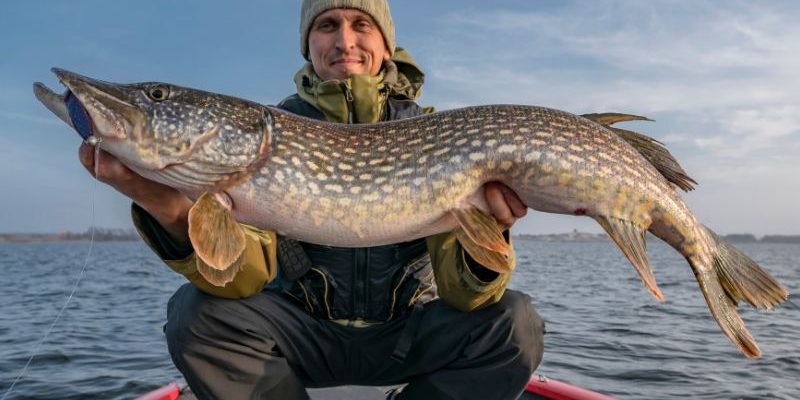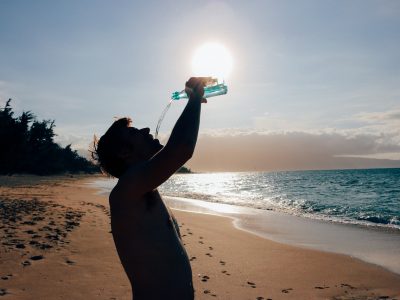For many anglers, landing a record-breaking fish is a dream come true, a testament to both skill and fortune. If you’re looking to etch your name in the annals of your state’s fishing history, the process to qualify your catch for state records involves specific steps and adherence to certain guidelines.
Important Information Regarding Potential State Record Fish in Florida
- The angler must have a valid Florida freshwater fishing license or be exempt pursuant to s. 379.353, F.S.
- The fish must be caught legally using an active hook-and-line method (bush hooks, snatch hooks, set lines, trotlines, etc. are excluded) in fresh waters of Florida.
- If possible, keep the fish alive. If it is not possible to keep the fish alive, place it in ice water. Avoid freezing the fish because it will dehydrate causing it to lose weight. More information on how to handle and care for fish can be found at: https://www.trophycatchflorida.com/trophycare.aspx
- Before contacting the Florida Fish and Wildlife Conservation Commission (FWC), weigh the fish to determine if a possible state record exists and if possible, take a photograph of the fish on a scale with the weight clearly visible.
How to Certify a State Record Freshwater Fish
- Contact FWC to notify of a potential state record catch and arrange to have an FWC employee witness the official weighing, on a certified scale, and take measurements. When certifying a state record Largemouth Bass, an FWC fisheries biologist does not have to be physically present, and the species can be certified by photograph or video, so long as an FWC employee witnesses official weighing and documentation. For any species other than Largemouth Bass, an FWC fisheries biologist must certify the species by physically witnessing and inspecting the fish.
- The preferred method for contacting FWC regarding a potential state record catch is by clicking here (https://myfwc.wufoo.com/forms/potential-state-record-largemouth-bass/). At waterbodies where possession of a potential state record Largemouth would be over the length or bag limit, this method of contact is required.
- Alternatively, FWC staff can be contacted by telephone.
- FWC Regional Offices: Northwest Region (850) 265-3676
Northeast Region (352) 732-1225
North Central Region (386) 758-0525
Southwest Region (863) 648-3200
South Region (561) 625-5122
- Fill out a Freshwater State Record Fish application and have the application signed by an FWC fisheries biologist. Applications can be obtained from local FWC offices or on the internet at www.MyFWC.com/fishing.
- Mail the completed application to: Florida Fish and Wildlife Conservation Commission, Record Fish Program, 620 South Meridian Street, Tallahassee, FL 32399-1600.
If your fish does not qualify as a state record, the Big Catch Angler Recognition Program rewards anglers who catch a memorable-sized fish. Qualifying anglers receive a colorful citation showing the type of fish caught and a window sticker to proudly display their prowess.

To qualify, the fish must be legally caught and exceed the specified minimum length or weight. The catch must be witnessed, and a Big Catch form completed. Details can be found on applications available at many tackle stores, FWC offices, in the Freshwater Regulations Summary, or on the internet at http://bigcatchflorida.com.
Source: https://www.bigcatchflorida.com/state-record.aspx
Catch and Document
When you believe you’ve caught a potential record-breaker, immediate and meticulous documentation is crucial. Make sure you have an accurate and reliable scale to weigh your catch. Many states require that the scale be certified, so it’s wise to understand acceptable methods for verification in advance. Additionally, measuring the length and girth of the fish using a certified tape measure can be necessary.
Take Clear Photographs

Photographic evidence is almost always required. Take clear, high-resolution photographs of your catch from multiple angles. Ensure that one photo shows the fish alongside a ruler or a standard object for scale, and another includes you holding the fish. These images will help verify the authenticity and size of the catch.
Witness Verification
Having a witness who can verify the catch and measurement process can be invaluable. Some states might require the presence of a witness at the time of the catch or during the weighing and measuring process. Ideally, this witness should not be a close family member to avoid any potential conflicts of interest.
Know the State Requirements
Familiarize yourself with the specific requirements set by your state’s wildlife agency. Each state has its criteria for what constitutes a record catch, including species of fish, size, and sometimes even the body of water where it was caught.
Here are links to some states’ wildlife agencies for easy reference:
- Texas: Texas Parks and Wildlife Department (TPWD)
- California: California Department of Fish and Wildlife (CDFW)
- New York: New York State Department of Environmental Conservation (DEC)
Submitting an Application
After thoroughly documenting your catch, you’ll need to submit an official application to your state’s wildlife agency. Ensure all forms are correctly filled out and include all necessary documentation.
Follow-Up and Patience
Once the application is submitted, the wait begins. State wildlife agencies will review all documentation and might even conduct further investigations or request additional information. This process can take time, so patience is essential. If approved, your name and catch will be enshrined in the state record books, immortalizing your angling achievement.
Ready to turn your big catch into a state record? Let us know which state you are from!
Stay prepared and informed with FishVerify! Download our app to get real-time identification, regulation updates, and more.

Happy Angling!


